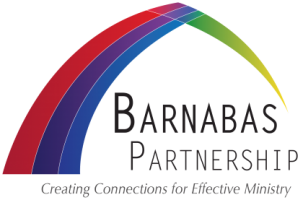This week I found the file for the first workshop I led on communication, complete with acetate overhead sheets, from 25 years ago! It is interesting to note changes. There was no mention of internet, email, texting, Facebook, Twitter, or any form of social media. There was no discussion of cultural bias, gender identity, or sexuality. Although there were deep political divisions in 1996, no one considered political polarization a critical issue to be considered at work or church. Today it seems we have given up on having conversations with anyone with whom we do not already agree. Having a meaningful conversation must have been so much simpler then!
And yet, I was asked to lead a workshop on communication for a group of social workers and caregivers in a non-profit agency. What were the concerns? Learning to listen to each other and trying to decipher from a conversation what was really going on in another person’s life. Some things never change. I’d like to share some of the principles and tools I shared then, just as applicable today, and a few more I’ve learned along the way.
- Take time
Don’t try to carry on a meaningful conversation while distracted. (Texting while watching TV and eating dinner?) People know when you are not really paying attention. - Focus
Listen to what they are saying without rehearsing, or researching, your next response. Ask yourself “what are they trying to say?” - Suspend judgement
Certain words and phrases can set you off, obscuring your ability to hear. Set aside what seems unreasonable or unacceptable to you long enough to understand the complete thought or feeling process of the other. - Build rather than argue
“Yes, but…” signals an argument has begun. A better alternative is “Yes, and…” which moves conversation forward. (Thanks to Susan Sparks for that). - Clarify
As “technique-y” as “What I hear you saying is…” can be, it can head off a lot of misunderstanding. “Help me understand how you came to see it this way?” is also helpful. - Speak for yourself
Putting words into their mouths is not helpful. Quoting others is probably not helpful. Articulating your thoughts without threatening, accusing, or negating the other person is helpful. This is often called “using I statements.” Some great ideas from Brian McLaren include:- I can understand how you might see it that way and wonder how I can help you understand where I’m coming from?
- Wow, I really see that differently…
- I understand Jesus/the Bible to be saying…
For people with whom we have permanent family relationships, those with whom we have longstanding relationships we wish to maintain, and those with whom we have a spiritual relationship, we do well to preface and conclude our conversations with the reminder that, unless what brought us together is on the table, our connection and affection predates and will outlast this conversation. Reducing that fear can make our conversations an avenue of strengthening our ties rather than severing them.
Dr. Paul Raybon, our partner in ministry in the Western Carolinas, can help you and your ministry navigate congregational unity and effectiveness. He is Associate Pastor at Hominy Baptist Church near Asheville, NC and works with churches and leaders as a coach and consultant in communication, visioning, administration, and spiritual formation. For more information about how he can help you, contact him at [email protected]
